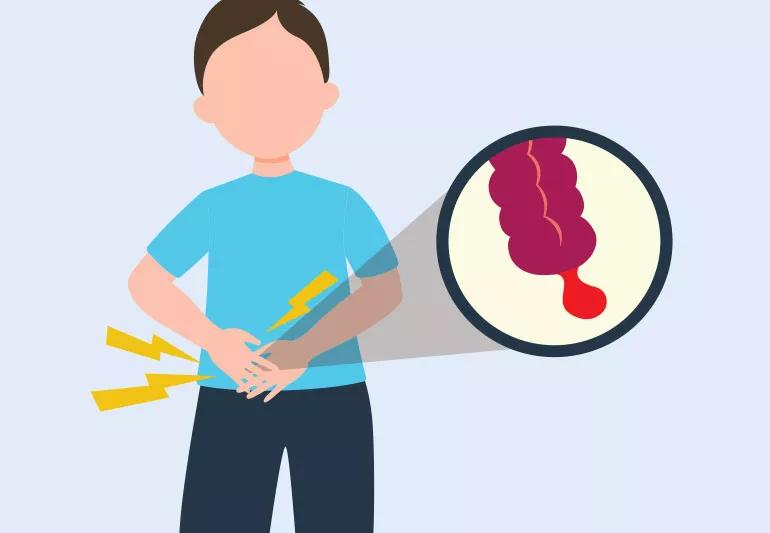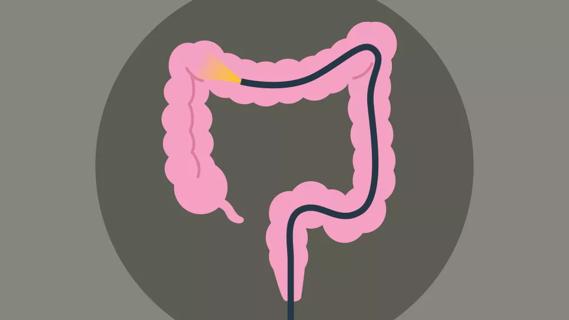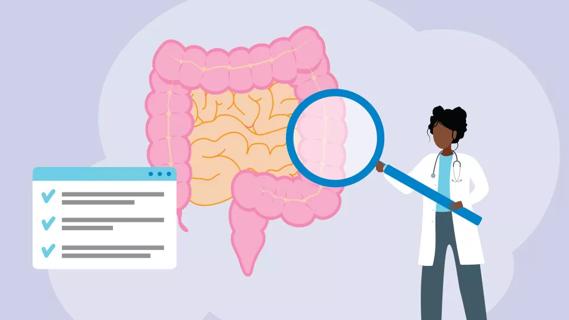Pain on your right side between your rib cage and hip bone warrants immediate treatment

The appendix. It’s a small, worm-shaped organ we can easily live without. A little tube protruding from our colons that — for reasons that remain a medical mystery — serves no known purpose, but can make us incredibly sick.
Cleveland Clinic is a non-profit academic medical center. Advertising on our site helps support our mission. We do not endorse non-Cleveland Clinic products or services. Policy
Fun.
Some healthcare providers suspect the appendix fights off some infections … but it can also get infected. And if it does get infected or if it bursts — you’re in trouble. You’ll need medical attention right away, stresses general surgeon William O’Brien, MD.
We talked to Dr. O’Brien about what appendix pain feels like, what causes it and what to do about it.
Spoiler alert: Appendicitis isn’t the only reason your appendix could hurt, but the response to appendix pain is ALWAYS getting immediate medical help.
There are three issues that can cause pain in your appendix. They are — in order from most to least common:
For now, let’s focus on appendicitis, as that’s probably what’s brought you here.
Appendicitis, which just means infection or irritation of the appendix, is the most common cause of appendix pain. Everyone has a low risk — roughly 8% — of developing this condition during their lifetime. It’s most common in adults ages 18 to 25 and in children ages 10 to 19. In fact, it’s the most frequent reason for emergency surgery in kids.
Appendicitis isn’t hereditary and you can’t pass it to others. But there’s nothing you or your doctor can do to prevent it or reduce your risk of getting it, Dr. O’Brien notes.
The appendix gets infected when there’s a blockage. Blockages can be caused by a wide range of issues, among them:
Left untreated, the blockage can cause your appendix to burst. This can spread the infection throughout your abdomen and into the surrounding organs, the consequences of which can be deadly.
Appendicitis typically starts out feeling like a stomachache. But Dr. O’Brien says the pain will eventually move down to your right lower quadrant, located between your rib cage and hip bone.
“Then it feels like an ache and is tender,” he explains.
Go to the emergency room or call your primary healthcare provider right away if you notice new or worsening pain over the course of several hours.
“Typically, people say that they know they have appendicitis when they’re on the ride to the emergency room because any bumps or movement hurt,” says Dr. O’Brien.
Especially in the early stages of appendicitis, you may think you just have stomach pains. One way to know if you’re dealing with something more serious is to pay attention to where the pain is in your abdomen.
If you have appendicitis, you’ll start feeling a dull, aching pain located in your lower right quadrant. “It’s not until the pain moves down to the right side and continues over a period of six to 12 hours that appendicitis is more likely,” notes Dr. O’Brien.
Also, be aware of your level of pain — especially if it’s not a type of pain you’ve had before.
“We all get abdominal pain on and off. And it’s not appendicitis necessarily,” he continues. “But when it’s appendicitis, it gets worse over time and won’t go away.”
Appendix pain doesn’t always present the same way in pregnant people. That’s because, over the course of a healthy pregnancy, your uterus expands, displacing your bowels.
Depending on the stage of the pregnancy and the size of the fetus, it’s possible to experience appendix pain in the middle or upper right side of your abdomen. It’s common to experience discomfort during pregnancy, but pain that doesn’t get better (or gets worse) over the course of six hours is an emergency and requires immediate attention.
Fortunately, appendicitis symptoms show up quickly — usually within the first 24 hours. Signs can appear anywhere from four to 48 hours after an issue occurs.
It’s especially important to see a healthcare provider if you also experience:
Appendicitis has similar symptoms to some other conditions, so it’s important to have a provider determine what’s wrong.
Appendicitis symptoms can mimic:
Appendicitis is the cause of most appendix pain, but there are occasions when something else is causing it.
You could have an abscess, which, simply put, is a pocket of pus. Abscesses in your abdomen or on neighboring organs can cause pain that mimics appendicitis — and could even cause it if left untreated.
Side note: Some abscesses are caused by appendicitis. Abscesses can grow on your appendix and can form following an appendix rupture. In other words — appendicitis and abscesses aren’t mutually exclusive.
In rare cases, a tumor can grow on or in your appendix, causing pain. These tumors may or may not be cancerous and are often present for a long time before causing any kind of discomfort.
You won’t necessarily experience appendicitis because of a tumor on or in your appendix, but it is a possible symptom. In fact — because most appendix cancers are slow growing — providers often only discover the tumor while performing an appendectomy for suspected appendicitis.
Because untreated appendicitis can have deadly consequences, you should see a healthcare provider or go to the emergency room if you feel continuous pain in the lower right side of your abdomen for more than six hours. Be sure to tell the healthcare provider if you’re experiencing any additional symptoms, as that could help narrow down the cause of your appendix pain.
There isn’t a blood test to identify appendicitis, but there are a series of tests providers will do if they’re concerned you may have appendicitis.
A blood sample can show an increase in your white blood cell count, which points to an infection.
A provider also may order an abdominal or pelvic CT scan or X-rays. They typically use ultrasound to diagnose appendicitis in children.
Appendicitis is treated in two ways:
A ruptured appendix will often require a longer recovery time. The surgeon will clean out any infection that’s spread in your abdomen, which can often be performed through a camera inserted through a small cut in your belly button.
Don’t hesitate to seek medical care if you notice potential signs of appendicitis, Dr. O’Brien reiterates. “Treatment has the best results if appendicitis is found early.”
Learn more about our editorial process.

Understand all the causes + when to see your doctor

Understanding what a 'gallbladder attack' feels like

They might not be fun, but colonoscopies are low-risk, high-reward procedures

Misleading claims, lack of scientific evidence and the risk of over-doing it are all concerns

It’s more than just avoiding gluten — it’s also important to focus on your mental and emotional health

Talk to your employer, ask for accommodations and manage your stress

Seeking help through therapy can be an important step in improving your quality of life when you have UC

If you’re at average risk, it’s recommended that you get your first colonoscopy at age 45

Your metabolism may torch 1,300 to 2,000 calories daily with no activity

A gentle touch in all the right places may help drain your sinuses